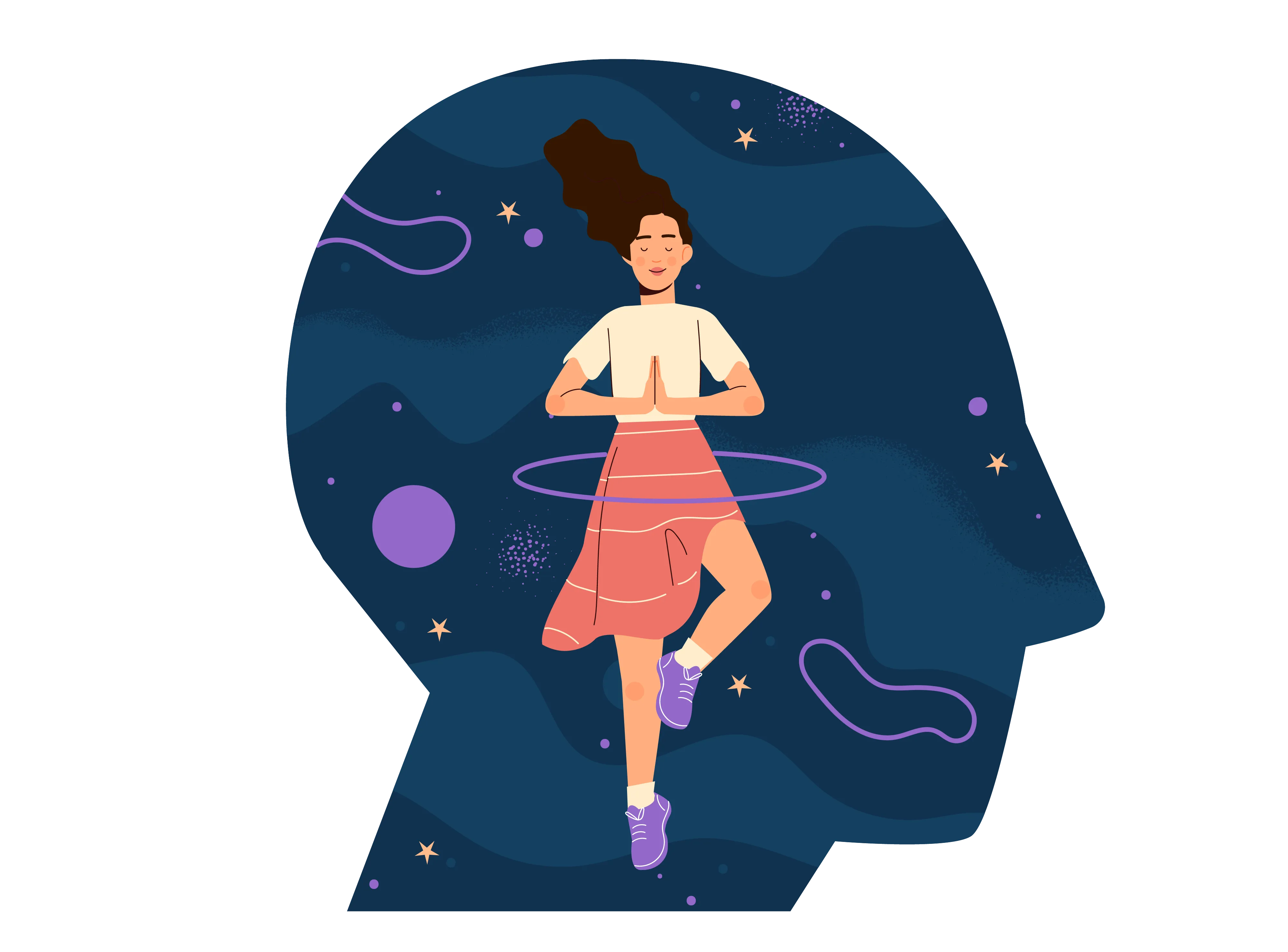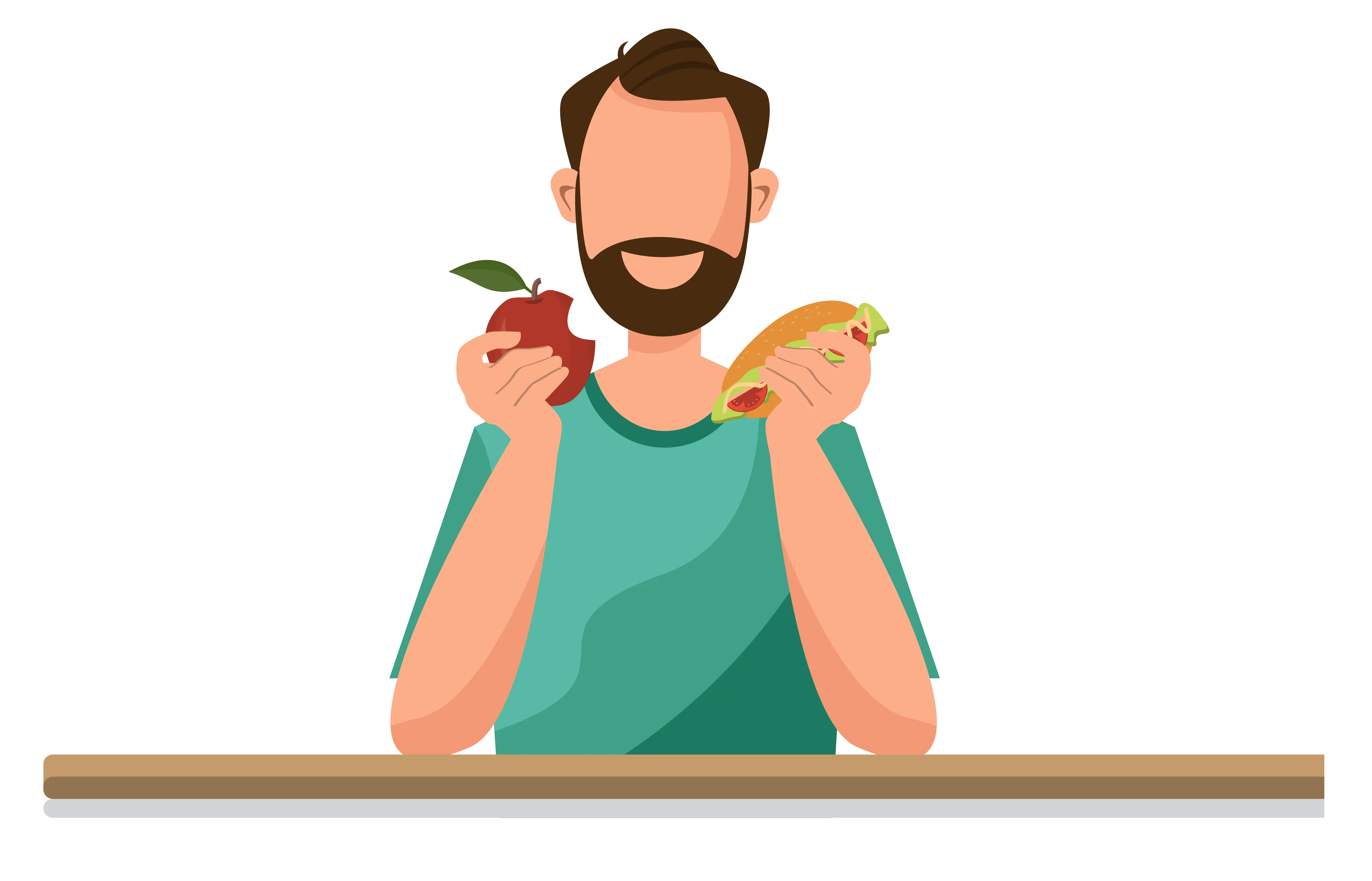Psychiatrist | 8 min read
Food For Mental Health: 13 Good Mood Food you must check out
Medically reviewed by
Table of Content
Key Takeaways
- Food for mental health and wellness improves your memory
- Mental wellness food may reduce symptoms of depression
- Include walnuts and whole grains in diet for mental health
The benefits of eating well-balanced food are not just limited to your physical health. You can also boost your mental health with a healthy diet. When it comes to mental wellness, food can help you think clearly, feel alert, and improve your attention span [1]. Having the ideal food for mental health and wellness increases your energy, boosts your mood, and may reduce symptoms of depression [2].
Eating well for mental health is important, particularly given the stress you may experience from a modern lifestyle. Read on to know the components of the best diet for mental health!
Which foods work best for improving mental health?
Unprocessed Foods
According to a lot of research, preservatives, food colorings, or other additives may cause hyperactivity, depression, and other health issues. [1] So, always keep in mind to eat food that has had minimal processing or contains much fewer artificial nutritious elements. Consider eating fresh produce as your "go-to" food. Holistic nutritional counselors always advocate eating clean, natural foods over processed ones.
Beans
Beans should be the first food that springs to mind when considering the best options for a healthy and happy brain. Being consistently high in fiber and antioxidants makes chickpeas, lentils, and kidney beans all the more appealing for controlling blood sugar levels and keeping us satiated for longer. Antioxidants are also essential for optimum mental health. Also, remember that beans include thiamine, a vitamin necessary for creating acetylcholine, a neurotransmitter important for memory.
Sweet Potato
As a good source of vitamin A, sweet potatoes support healthy eyes and bones while also boosting the immune system.
Broccoli
Broccoli is leafy green vegetable stuffed with bone-healthy vitamins like C, A, and K, supporting tumour growth prevention and reducing cancer risk. Moreover, studies show low selenium levels contribute to fatigue, anxiety, and despair. Hence, one of the finest foods to treat sadness is broccoli.

Walnuts
A study published in 2019 observed that people who regularly eat nuts, especially walnuts, are less prone to depression [3]. Walnuts are rich in antioxidants that can inhibit oxidation in the brain and body. Surprisingly, walnuts help grow new brain cells that are required for good mental health. Nuts in general are a great source of unsaturated fats. In fact, if you consume more unsaturated fat than saturated fat, you are less likely to have anxiety.
Seafood
Fish is often regarded as a mental wellness food. This is because seafood such as salmon, sardines, tuna, mackerel, trout, oysters, mussels, and herring are rich in DHA, an omega-3 fatty acid. It helps improve both short and long-term memory and boosts mental health. These fatty acids are known to reduce levels of anxiety. According to a study in Nutritional Neuroscience, consuming a high quantity of omega-3-rich foods is one of the key dietary recommendations for preventing depression [4].
Whole grains
Whole grains are a good mood food as they are rich in tryptophan, an amino acid that helps produce serotonin, the feel-good hormone. In a study, women who consumed moderate amounts of wholegrain had lower odds of having anxiety [5]. Moreover, whole grains are beneficial for people with depression. The feel-good hormone in wholegrain helps calm your mind and improves your mood. Beans, soy, oats, and wild rice are some examples of whole grains.

Berries
Berries such as strawberries, raspberries, blueberries, and blackberries are rich in antioxidants. They help in repairing damaged cells and fight inflammation caused by free radicals. They are also found to lower symptoms of anxiety and depression. Polyphenol, a compound found in blueberries and strawberries improves concentration, attention, and memory. A review in 2020 found that berries reduce psychological distress, reduce symptoms of depression, and promote optimism [6].
Green vegetables
According to a study, consuming leafy greens such as spinach, kale, and collard greens helps to slow cognitive decline [7]. Folic acid in spinach and other leafy green vegetables helps your brain prevent depression. This diet for mental health is also linked with fighting insomnia and reducing dementia in older people.
Quinoa
Quinoa, without a doubt, one of the best grains to eat. Proteins, iron, and fibre are abundant in quinoa, helping to regulate weight, lower the risk of heart disease, and fend off diabetes.
Yogurt
Yogurt and other products provide the benefits of probiotics which help your digestive system. Apart from assisting in digestive health, probiotics have been associated with reduced stress, anxiety, and depression. Yogurt also contains potassium and magnesium that help oxygen reach your brain. Thus, it boosts your brain’s ability to function by impacting mental health.
Eggs
Antioxidants in egg yolk help prevent macular degeneration, maintain healthy eyes, and shield the skin from UV ray damage. They also provide choline, which improves memory, for optimal brain growth.
Dark chocolate
Dark chocolate contains cocoa, which has a type of antioxidant known as flavonoids. This antioxidant boosts attention and memory, enhances mood, and fights cognitive decline in older adults. The darker the chocolate is, the better it is for your health as it has more cocoa. However, you should consume this food for mental health and wellness in moderation.
Additional Read: Tips to maintain your mental health
Now that you know the relationship between diet and mental health, choose good mood foods! They will boost how you feel and think. Apart from this, do not forget to adopt other healthy habits such as limiting screen time and keeping yourself physically active. Get advice from top nutritionists and health professionals by booking an online doctor consultation on Bajaj Finserv Health. This way, you can know more about the best food for mental health and wellness and physical health too.
FAQs
Which foods are good for depression?
Eat a range of meals high in vital nutrients, such as the following, to support healthy brain function:
- Vitamin C: Citrus fruits, leafy green vegetables, and other fruits and vegetables
- Vitamin D: Salmon, cod, shrimp, eggs, fortified milk, juice, and cereal products
- Vitamin B: Red meat, fish, eggs, dairy products, whole grains, and leafy green vegetables
- Complex carbohydrates: Whole grain slices of bread and cereals, brown rice, quinoa, millet, legumes, and starchy vegetables like potatoes, corn, peas, and winter squash
- Minerals: Magnesium, selenium, and zinc are found in nuts, seeds, whole grains, green vegetables, and fish
- Tryptophan: Lean red meat, chicken, eggs, and beans
- Phenylalanine: Lean red meat, poultry, eggs, dairy products, soybeans, and seeds
- Omega-6 fatty acids: Salmon, trout, tuna, beans, walnuts, broccoli, cauliflower, spinach, cantaloupe, chia and hemp seeds, and canola and flax seed oil
Which foods act as natural antidepressants?
Vegetables and Fruits
Your body needs various vitamins and nutrients to thrive physically and mentally, and fresh fruits and vegetables are a great source. According to studies, persons who consumed a wide variety of veggies for three months showed fewer signs of depression than those who consumed a smaller variety of vegetables.[2]
Leafy Greens
A great source of folate is spinach. Meanwhile, kale is rich in nutrients that may lessen the symptoms of depression, such as vitamin D, vitamin K, and zinc. Consuming spinach extract reduced the symptoms of depression in mice, according to a study. [3]
Fish
It's common knowledge that eating fish is good for your heart, especially oily fish like salmon, mackerel, and sardines. In addition, the idea that eating fish may help lessen the symptoms of depression is supported by research. Omega-3 fatty acids and a diet high in vitamin D are suggested to be important factors in this.
Fermented food
Fermented or probiotic foods have become increasingly popular, largely because their high probiotic content seems to have a beneficial effect on gut health. Fermented foods may also help those who suffer from depression, according to experts, because the gut and the brain are so intimately related.
Which fruits are best for stress?
Apples
Pectin, a soluble fibre included in fruit and vegetables, is abundant in apples. High fibre intake has been related to a decreased risk of depressive symptoms. When it comes to the bacteria in the stomach, pectin might offer extra advantages. Pectin is prebiotic, meaning it feeds the good bacteria in your gut. In recent years, researchers have learned more about the intricate connection between the stomach and the brain, and they have found a clear link between the gut microbiome and depression.
Several more fruits high in pectin include:
- Plums
- Gooseberries
- Blackberries
- Oranges
Bananas
According to their age and sex, adults should aim for 25 to 34 grammes of fibre per day. [4] A medium banana contains roughly 3.1 grammes of fibre (118 grams). Researchers discovered that women who consumed two 130-gram banana servings daily were less likely to experience depressive symptoms.
Additional fruits to take into account are:
- Raspberries
- Mangoes
- Oranges
- Kiwi fruit
- Strawberries
What is the best fruit for anxiety?
Blueberries
Blueberries are a rich source of vitamin C and other antioxidants, such as flavonoids, which have been shown to enhance mental health and, as a result, lessen anxiety.
Cherries
Cherries have a wealth of antioxidants, including quercetin, which can increase emotions of tranquilly and peace. In addition, eating more fruits and vegetables will lessen the signs of anxiety and depression and raise your level of happiness.
Citrus Fruits
Oranges and other citrus fruits are meals strong in vitamin C that can help reduce stress and improve immunity. In addition, consuming this vitamin can assist in lowering blood pressure and levels of the stress hormone cortisol in situations with high anxiety.
Which dry fruit is good for depression?
Walnuts
Walnut consumption has been shown to lessen the signs of depression. According to the most recent study, individuals who took walnuts saw a 26 per cent decrease in their depression scores compared to those who did not. [5]
Walnuts may also lessen the risk or advancement of other brain illnesses like Parkinson's disease, stroke, and depression, as well as cardiovascular disease and type 2 diabetes, according to numerous animal and human studies.
References
- https://www.sutterhealth.org/health/nutrition/eating-well-for-mental-health
- https://thriveworks.com/blog/5-psychological-benefits-of-eating-healthy/
- https://www.mdpi.com/2072-6643/11/2/275/htm
- https://www.tandfonline.com/doi/abs/10.1179/1476830515Y.0000000043?journalCode=ynns20&
- https://link.springer.com/article/10.1007/s00394-017-1585-x
- https://www.ncbi.nlm.nih.gov/pmc/articles/PMC7019743/
- https://pubmed.ncbi.nlm.nih.gov/29263222/
- https://www.ncbi.nlm.nih.gov/pmc/articles/PMC2394588/
- https://www.ncbi.nlm.nih.gov/pmc/articles/PMC7831325/
- https://www.ncbi.nlm.nih.gov/pmc/articles/PMC6262511/
- https://www.ncbi.nlm.nih.gov/pmc/articles/PMC7589116/
- https://www.ncbi.nlm.nih.gov/pmc/articles/PMC6413101/
Disclaimer
Please note that this article is solely meant for informational purposes and Bajaj Finserv Health Limited (“BFHL”) does not shoulder any responsibility of the views/advice/information expressed/given by the writer/reviewer/originator. This article should not be considered as a substitute for any medical advice, diagnosis or treatment. Always consult with your trusted physician/qualified healthcare professional to evaluate your medical condition. The above article has been reviewed by a qualified doctor and BFHL is not responsible for any damages for any information or services provided by any third party.





